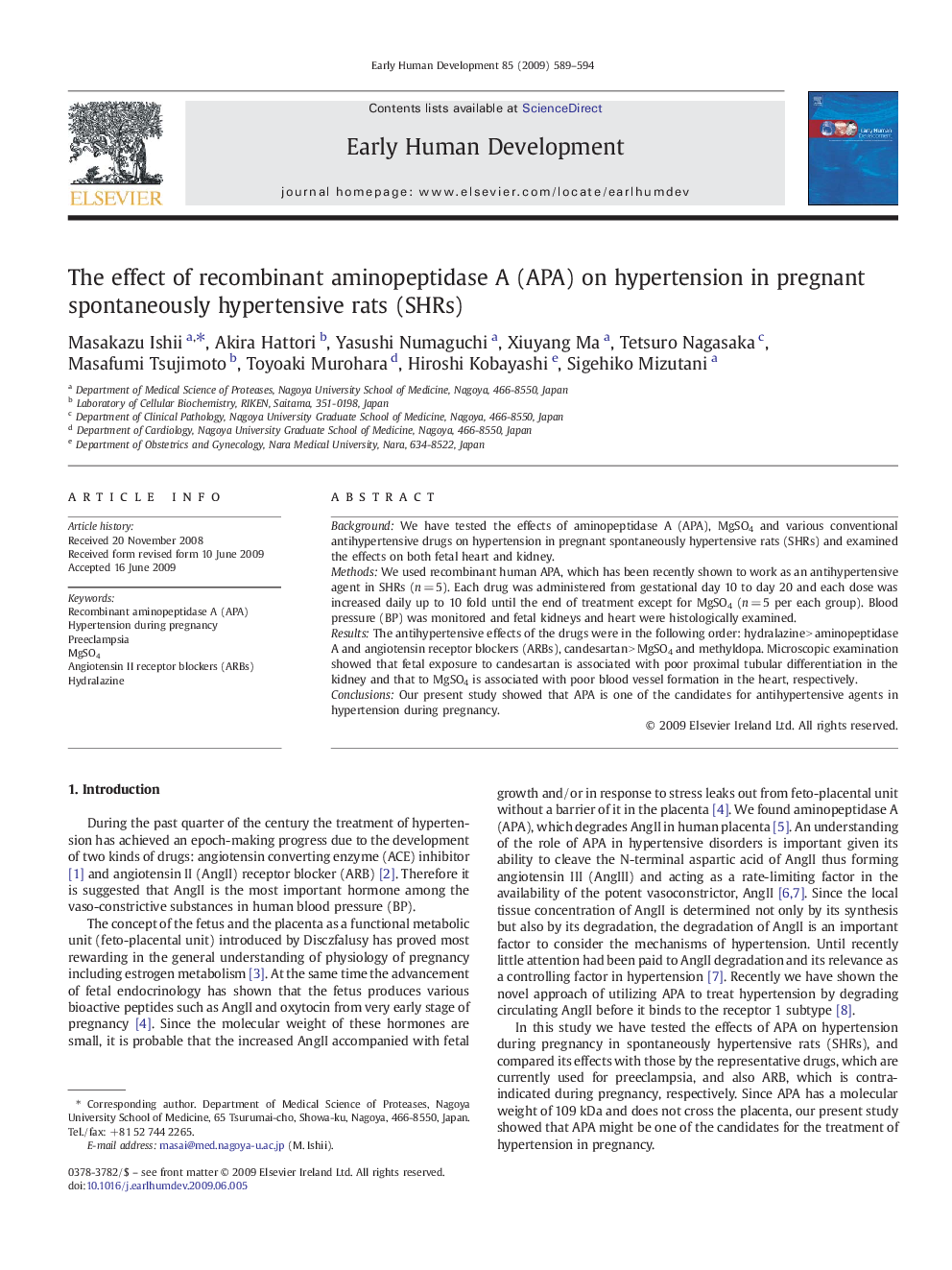| Article ID | Journal | Published Year | Pages | File Type |
|---|---|---|---|---|
| 3918542 | Early Human Development | 2009 | 6 Pages |
BackgroundWe have tested the effects of aminopeptidase A (APA), MgSO4 and various conventional antihypertensive drugs on hypertension in pregnant spontaneously hypertensive rats (SHRs) and examined the effects on both fetal heart and kidney.MethodsWe used recombinant human APA, which has been recently shown to work as an antihypertensive agent in SHRs (n = 5). Each drug was administered from gestational day 10 to day 20 and each dose was increased daily up to 10 fold until the end of treatment except for MgSO4 (n = 5 per each group). Blood pressure (BP) was monitored and fetal kidneys and heart were histologically examined.ResultsThe antihypertensive effects of the drugs were in the following order: hydralazine > aminopeptidase A and angiotensin receptor blockers (ARBs), candesartan > MgSO4 and methyldopa. Microscopic examination showed that fetal exposure to candesartan is associated with poor proximal tubular differentiation in the kidney and that to MgSO4 is associated with poor blood vessel formation in the heart, respectively.ConclusionsOur present study showed that APA is one of the candidates for antihypertensive agents in hypertension during pregnancy.
